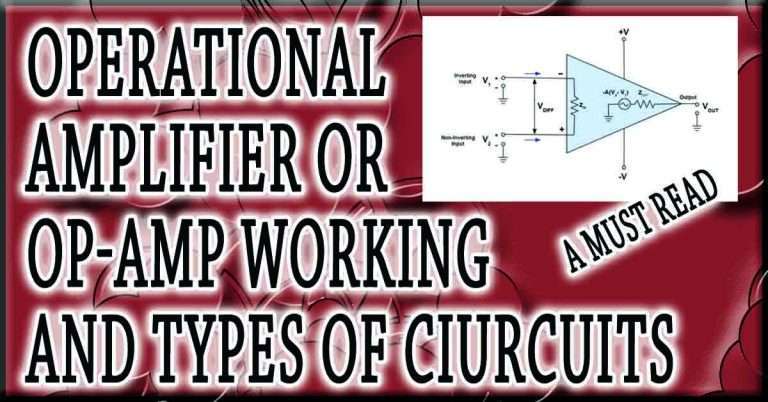6-Month Electrical Programs That Pay Well in USA
In today’s fast-paced world, spending years in school isn’t always necessary to land a high-paying job. Many people are now turning to short-term programs that offer the skills and certification needed to enter well-paying careers. One such field is electrical work, which continues to grow rapidly due to infrastructure expansion, green energy projects, and the rise of smart technology. If you’re wondering how to break into this field quickly, 6-month electrical programs that pay well in the USA might be your best route.
Table of Contents
Table of Contents

These programs are designed for individuals who want to acquire hands-on, technical skills without committing to a 2- or 4-year degree. They provide targeted training in a short time and prepare students for certifications that lead to good-paying jobs. From residential wiring to industrial systems, these short-term certifications open the door to many career paths.
Unlike traditional college routes, most 6-month electrical programs are job-focused. They’re offered through trade schools, community colleges, and technical institutes. Whether you’re fresh out of high school, looking to change careers, or want to upskill, these programs are worth exploring.
Key Takeaways
- 6-month electrical programs offer fast, job-ready skills for high-paying roles
- These programs prepare you for key industry certifications such as OSHA, NCCER, and Journeyman licenses
- Jobs like electrician helpers, low-voltage technicians, and solar installers often start at $45,000–$60,000 per year
Know more about 6-Month Certificate Programs That Pay Well in Canada
Why Choose 6-Month Electrical Programs That Pay Well in USA
The biggest advantage of a 6-month electrical training course is time. In just half a year, you can be job-ready and start earning. Many schools offer evening and weekend classes to fit your schedule. Another major benefit is cost. Most programs range between $3,000 and $8,000—a fraction of the price of a college degree. This makes it an attractive option for people wanting a return on investment fast.
More importantly, the demand for electrical workers is strong. According to the U.S. Bureau of Labor Statistics, the job outlook for electricians is projected to grow 6% from 2022 to 2032, which is faster than average. As industries expand and buildings become smarter, skilled electricians are needed everywhere—from residential to commercial and even in the renewable energy sector.
Electrical training is also highly transferable. Whether you start as an electrician apprentice or a technician, you can move up to supervisory roles or become a licensed master electrician. Some programs even allow you to specialize in areas like industrial automation, smart home systems, or solar installations.
Top 6-Month Electrical Programs That Pay Well in USA
Here are some popular programs that can prepare you for entry-level electrical careers in just six months:
| Program Name | Institution Type | Duration | Average Starting Salary |
|---|---|---|---|
| Electrical Technician Certificate | Technical Institute | 6 months | $50,000 – $60,000 |
| Industrial Electrician Training | Community College | 6 months | $52,000 – $65,000 |
| Low Voltage Technician Program | Trade School | 6 months | $45,000 – $55,000 |
| Residential Wiring Certification | Online/Hybrid | 4–6 months | $48,000 – $60,000 |
| Solar PV Installation Training | Solar Training Centers | 5–6 months | $50,000 – $70,000 |
| Electric Vehicle (EV) Systems Tech | Vocational College | 6 months | $55,000 – $72,000 |
Each of these programs offers focused education. For instance, the Industrial Electrician Training covers motor controls, PLCs (programmable logic controllers), and electrical troubleshooting. Similarly, Solar PV Installation programs train you in solar panel wiring, battery storage, and inverter configuration.
Know more about Free Online Certificate Programs in Electrical on Weekend
Technical Skills You Gain from Short-Term Electrical Courses
Most 6-month electrical programs are packed with practical knowledge. Here are the core competencies you develop:
- Circuit theory and wiring methods
- National Electrical Code (NEC) compliance
- Blueprint reading and schematic interpretation
- Installation of lighting, switches, and outlets
- Control panel and motor installation
- Use of tools like multimeters, clamp meters, and testers
- Troubleshooting residential and commercial systems
Students also learn safety protocols according to OSHA (Occupational Safety and Health Administration). These practices reduce the risk of injury and ensure compliance with federal laws.
Many training centers include a module on basic PLC programming. This is highly valued in industrial automation and can boost your earning potential significantly.
What Certifications Can You Earn in 6-Month Electrical Programs?
Certifications are essential to landing a job. Here are some that you can earn within six months:
- OSHA 10/30 Certification – Demonstrates understanding of workplace safety
- CPR and First Aid – Often required by employers for job site safety
- NCCER Electrical Certification – Nationally recognized and adds to your credibility
- EPA 608 Certification – Important for those working with HVAC electrical systems
- Solar PV Installer (NABCEP Entry-Level) – Ideal for solar-specific jobs
These certifications make your resume stand out. Employers look for verified proof of skill, and these accreditations do exactly that.
High-Paying Jobs You Can Get After a 6-Month Electrical Program
Completing a short-term electrical course sets you up for various roles. These may start as entry-level, but they offer great growth potential.
| Job Title | Median Salary (USA) | Job Growth Outlook |
|---|---|---|
| Electrician Helper | $48,000 | Strong |
| Low Voltage Technician | $52,000 | Growing |
| Residential Wireman | $55,000 | Strong |
| Solar Installation Technician | $60,000 | Very Strong |
| Electrical Maintenance Tech | $58,000 | Growing |
| Control Panel Assembler | $50,000 | Stable |
| EV Charging Station Installer | $62,000 | Emerging |
Some of these roles allow you to move into more advanced positions. For example, a Residential Wireman can become a Journeyman Electrician with experience and licensing. Similarly, Solar Technicians can grow into System Designers or Project Managers.
Are Online 6-Month Electrical Programs Worth It?
Yes, if they are accredited and include a hands-on component. Hybrid models, where you complete the theory online and then attend weekend labs or short intensives, are quite popular. These models are flexible and ideal for working professionals.
However, full online-only programs should be approached carefully. Electrical work is hands-on, and employers value practical experience. Choose institutions that offer in-person training modules along with theory.
Well-known online platforms like Penn Foster, Ashworth College, and Coursera offer electrical technician-related content, but they should ideally supplement—not replace—certified trade school courses.
How Much Can You Earn After a 6-Month Electrical Program in the USA?
One of the biggest advantages of these short programs is their fast earning potential. Entry-level salaries typically range from $45,000 to $60,000 per year. With 2–3 years of experience, this can rise to $70,000 or more.
Specializing in niche areas like industrial automation or EV charger installation can push salaries even higher. Contractors and independent electricians can earn $100,000+ annually depending on their client base and location.
Here’s a general pay scale based on years of experience:
| Experience Level | Expected Salary Range |
|---|---|
| Entry-Level (0–1 Year) | $45,000 – $55,000 |
| Mid-Level (2–4 Years) | $55,000 – $70,000 |
| Senior (5+ Years) | $70,000 – $100,000+ |
Keep in mind that location matters. Electricians in states like California, New York, and Massachusetts tend to earn more due to higher demand and cost of living.
Is It Hard to Get into 6-Month Electrical Training Programs?
Most programs have minimal entry requirements. You generally need a high school diploma or GED. Some schools require a basic aptitude test in math and science. No prior electrical experience is needed.
The focus is on practical learning, not academic performance. Many institutions offer financial aid, scholarships, or installment plans to make the programs accessible.
Veterans, unemployed individuals, or career changers can also benefit from workforce development grants offered at the state and federal levels.
Final Thoughts: Should You Enroll in a 6-Month Electrical Program That Pays Well in USA?
Absolutely. If you’re seeking a hands-on career, enjoy solving technical problems, and want job security, then this is a smart path. These programs are affordable, fast, and in high demand. In just six months, you could be working in a well-paying, skilled trade that’s only growing.
Follow Us on Social:
Subscribe our Newsletter on Electrical Insights for latest updates from Electrical Engineering Hub
#ElectricalProgramsUSA, #TradeSchoolSuccess, #ElectricianTraining, #HighPayCareers, #6MonthPrograms, #SkilledTrades, #TechnicalEducation, #CareerInElectricity, #VocationalTraining, #ElectricianJobsUSA, #BlueCollarBoom, #HandsOnCareers, #ElectricianLife, #USATradeSchools, #FastTrackEducation


